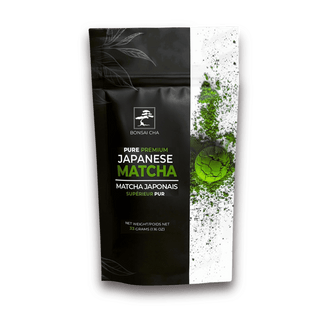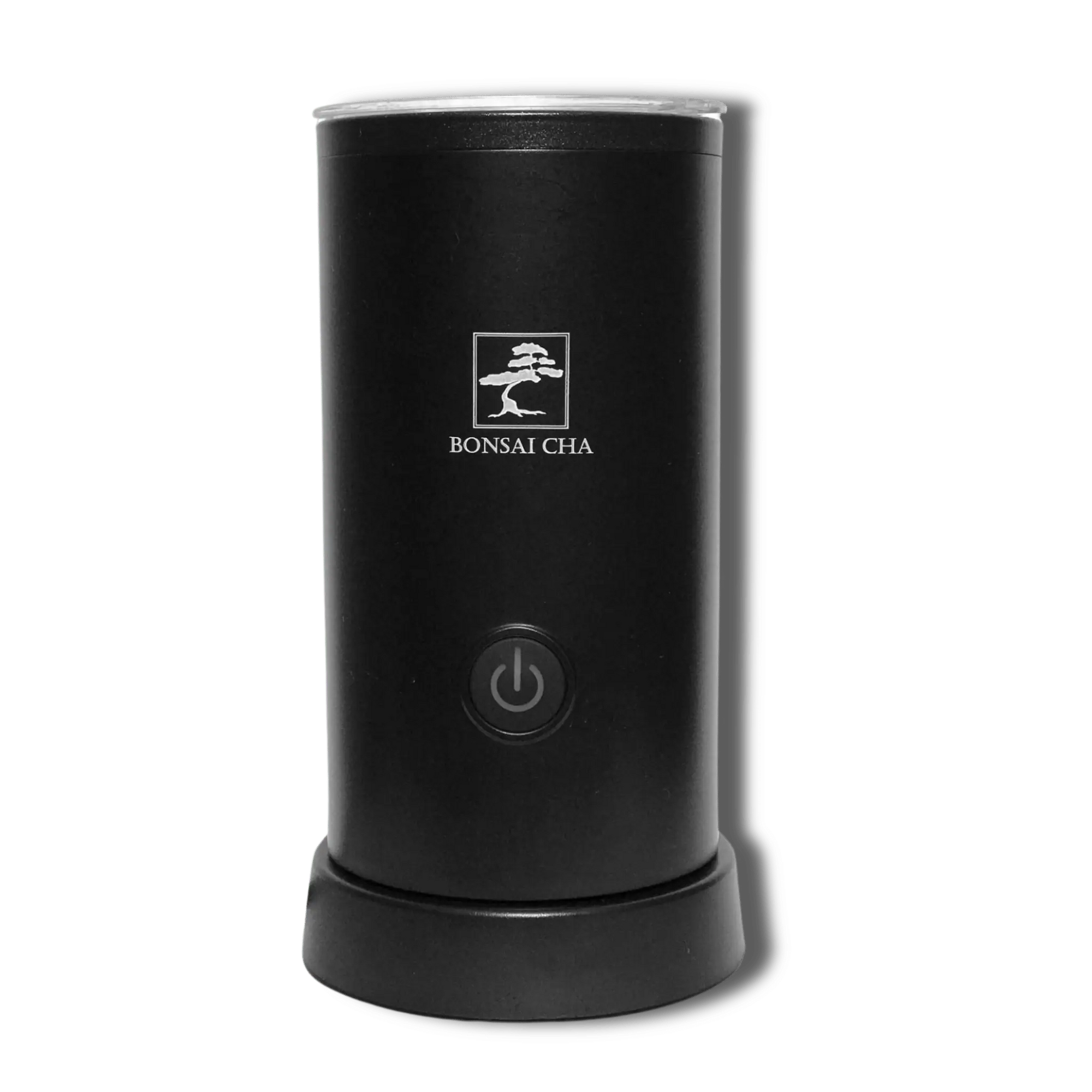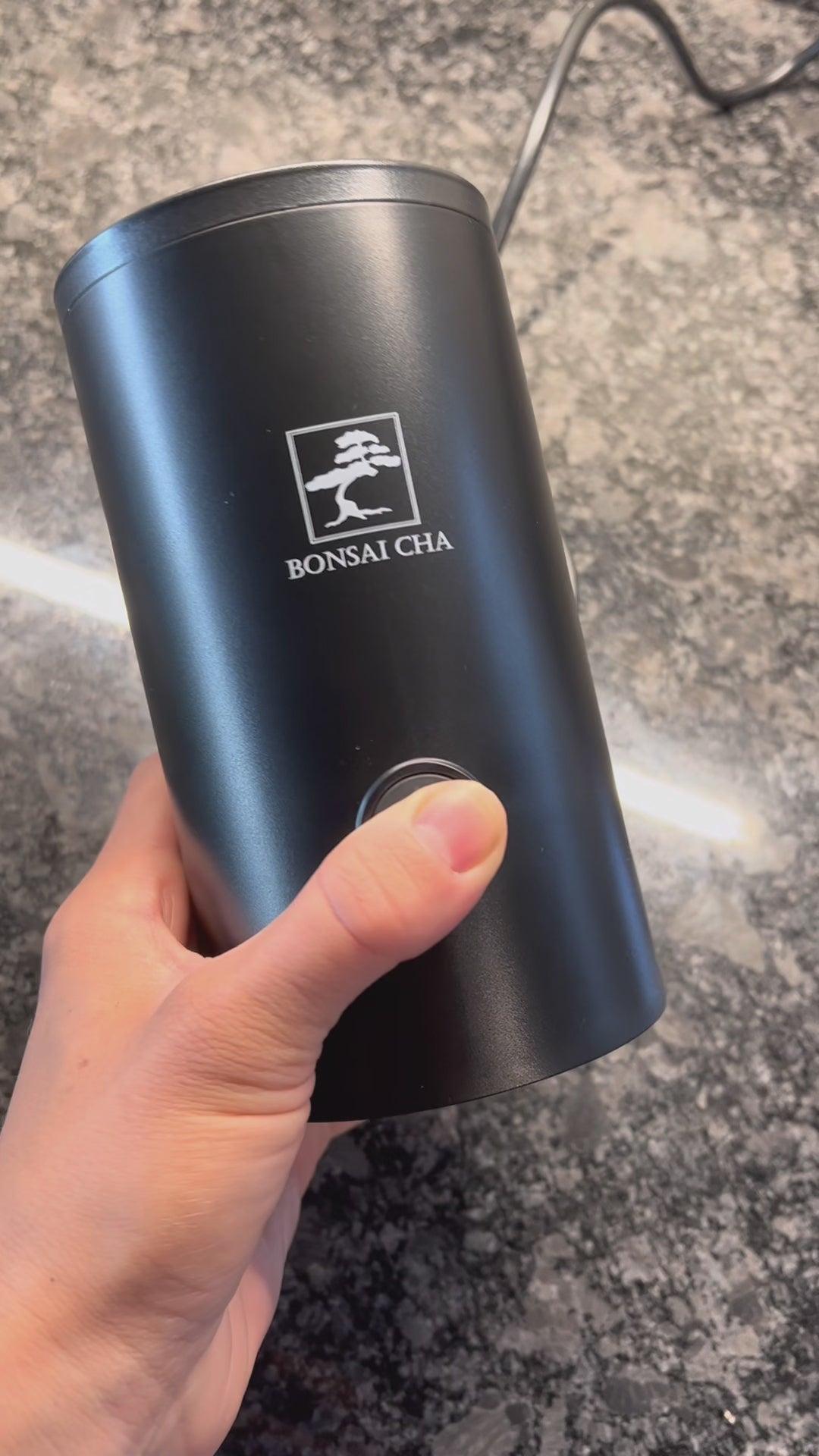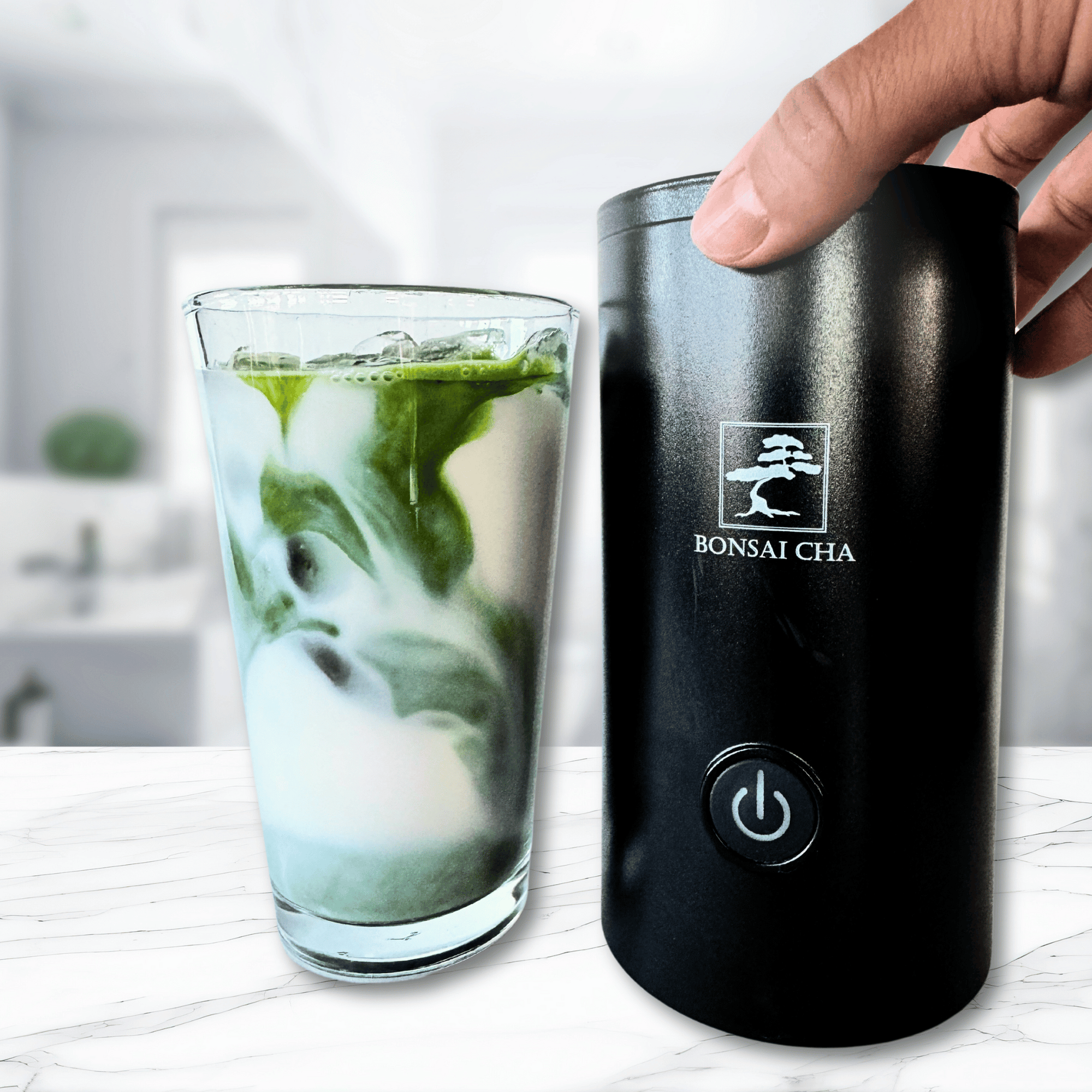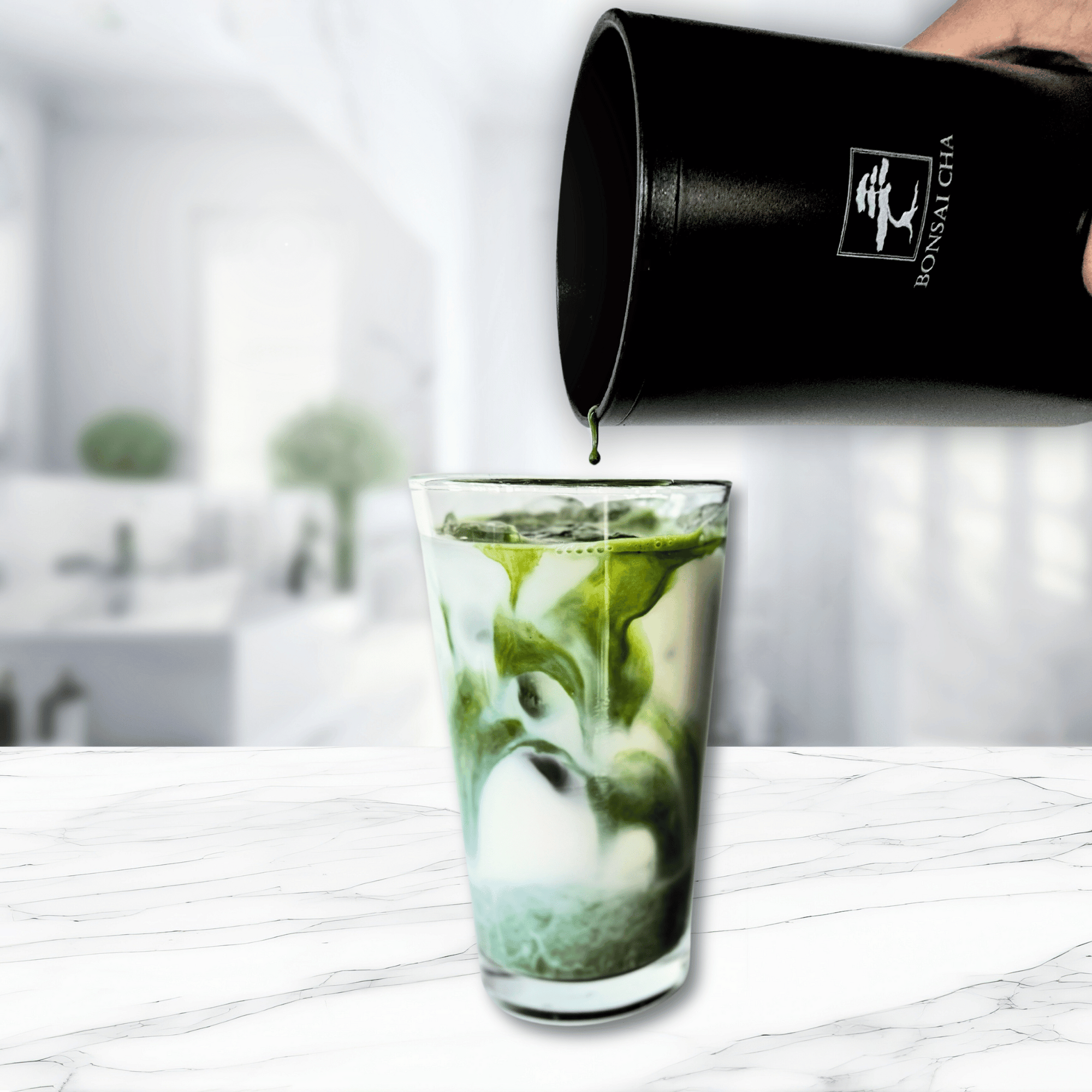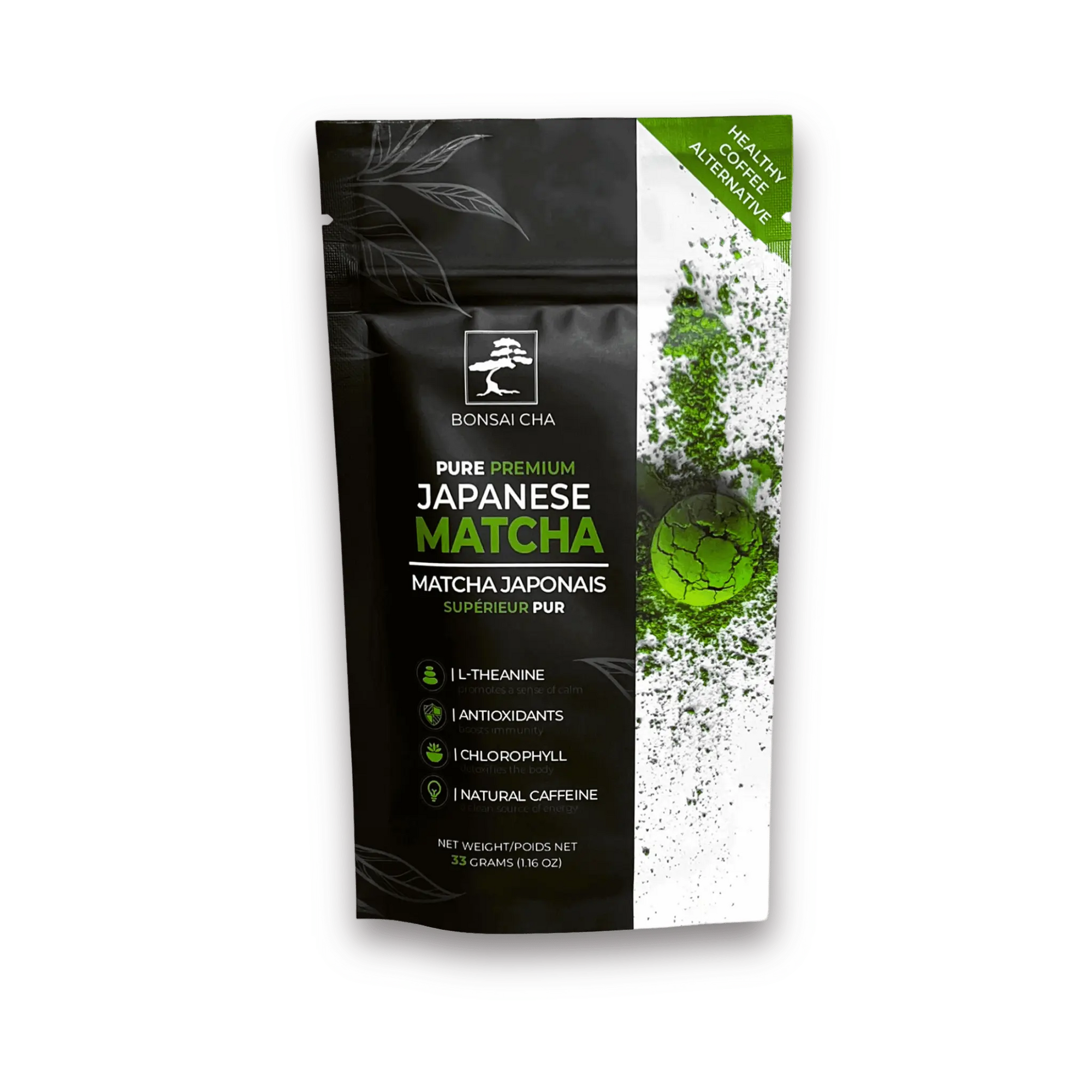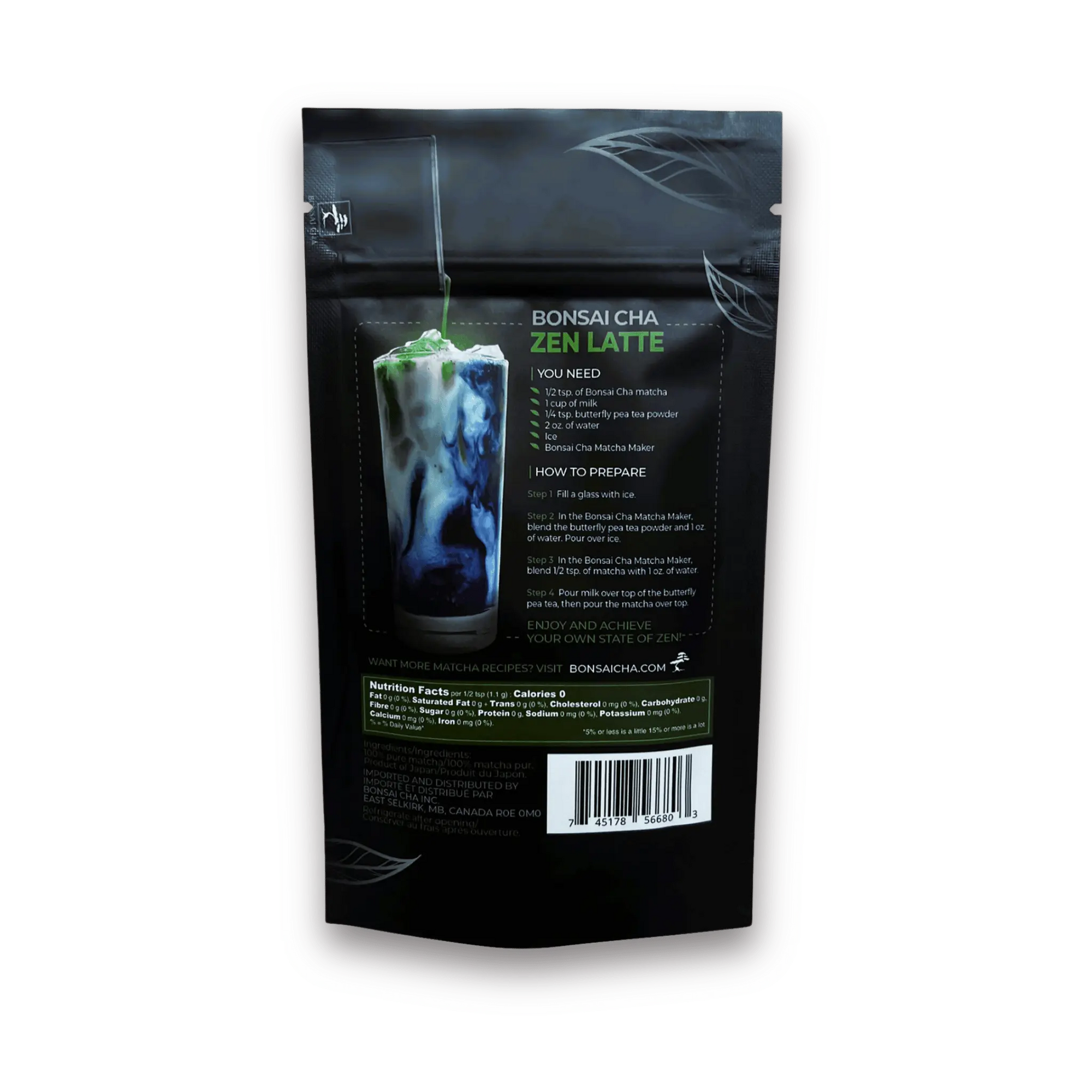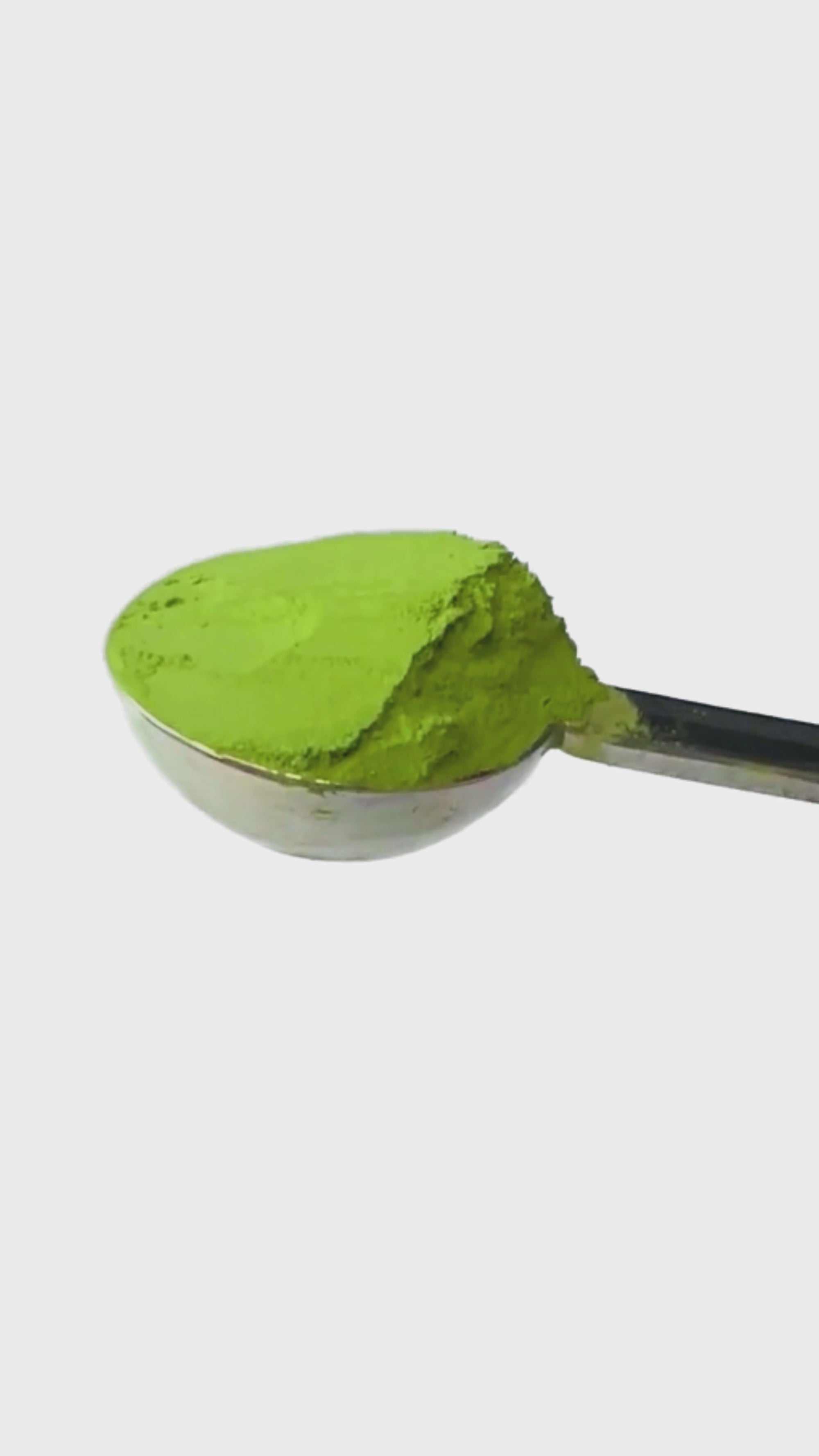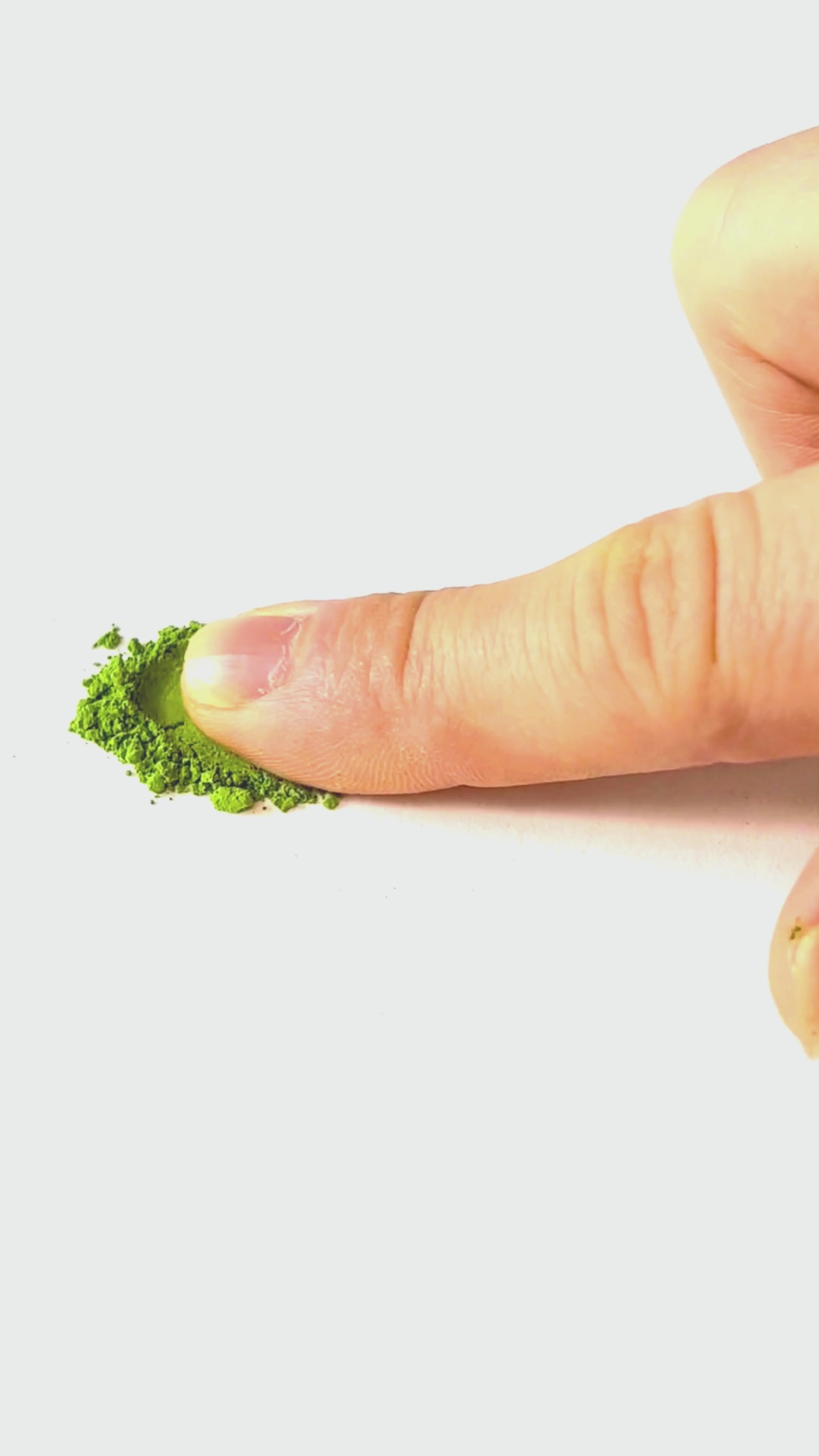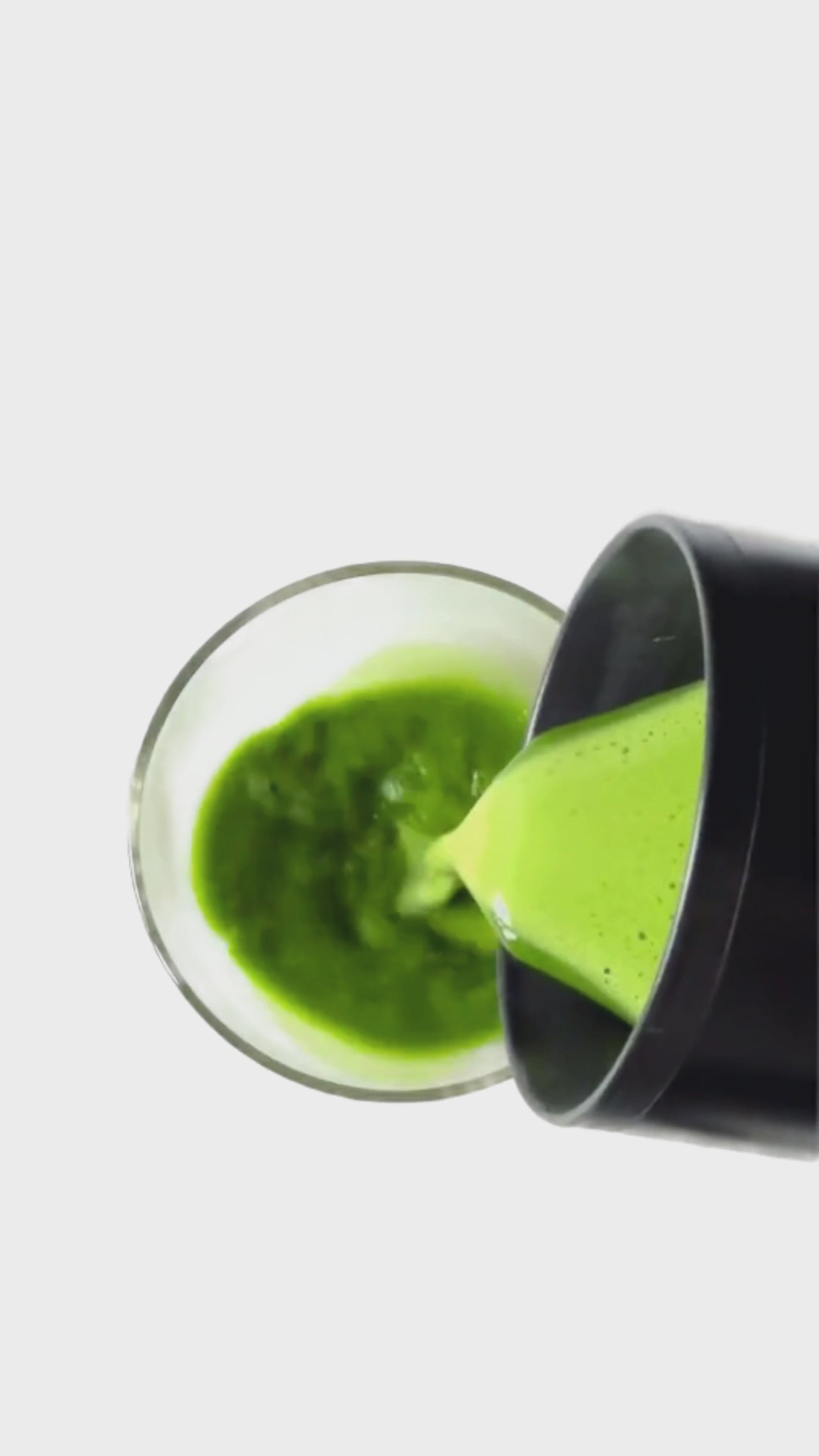Matcha Vs. Coffee: Crazy Facts You Didn't Know...
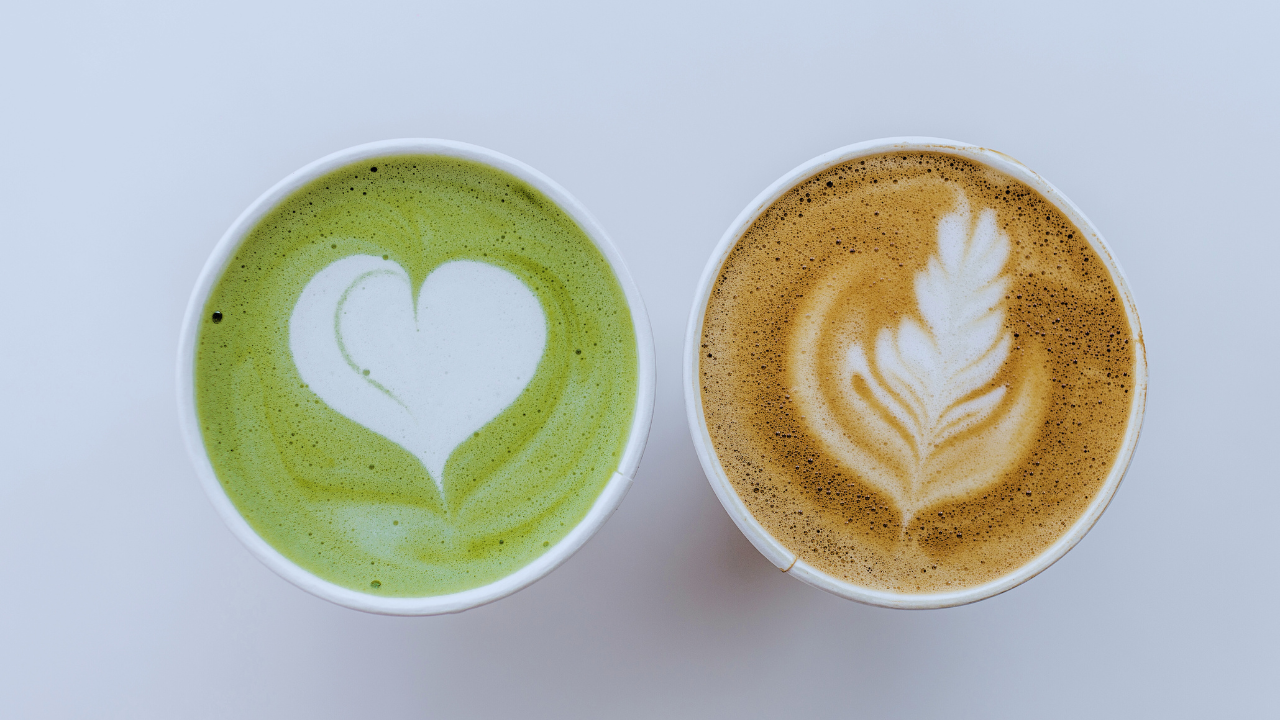
As the love for matcha continues to grow, and with each beverage offering unique benefits, one must wonder - when it comes to coffee vs. matcha, which is better for your health and wellness?
The answer is both coffee and matcha have their own unique health benefits. Coffee provides a quick energy boost due to its higher caffeine content, but it can lead to jitters and energy crashes.
Matcha, on the other hand, offers a more sustained energy release, thanks to its combination of caffeine and L-Theanine, promoting calm focus without the crash. Additionally, matcha is rich in antioxidants, particularly EGCG, which supports heart health and reduces inflammation.
While both drinks can be enjoyed for energy and focus, matcha tends to have more balanced, long-term wellness benefits.
Let's take a look at these two popular drinks and compare their effects on energy, health, and overall well-being.
Key Takeaways
- Health Benefits: Matcha provides 2.5 to 5.5 times more EGCG than regular green tea, with 1 teaspoon delivering 37-43% of the daily recommended EGCG intake (322 mg/day), making it a powerful source of antioxidants. On the other hand, consuming 3 to 4 cups of decaffeinated coffee containing high contents of CGA was shown to significantly reduced the risk for type 2 diabetes by 30%.
- Caffeine: Coffee has 95 mg of caffeine per cup, while matcha contains 70 mg per 2g serving. Matcha provides sustained energy without jitters, while coffee offers a quick boost but can cause a crash.
- Hormonal Balance: Matcha reduces cortisol levels, promoting stress relief. Coffee may spike cortisol, leading to stress and insulin resistance.
- Weight Loss: Studies show matcha can increase fat burning by 17-20% during exercise, while coffee temporarily boosts metabolism by 3-11%.
- Oral Health: Matcha contains catechins that improve oral hygiene, while coffee can stain teeth.
- Ease of Preparation: Coffee and matcha are now both easy to prepare thanks to modern technologies, like matcha making machines.
Don't 'Cha Wanna Be in the Know?
Join our matcha community and be the first to receive insider tips, special offers, and exclusive deals delivered straight to your inbox.
Which is Healthier: Coffee or Matcha?
Both matcha and coffee offer health benefits, but matcha’s unique nutrient profile may give it an edge.
Nutritional Breakdown:
- A typical 8-ounce cup of brewed coffee contains 2 calories and 96 mg of caffeine.
- A 2-ounce cup of matcha contains 5 calories and between 38-88 mg of caffeine, depending on quality
Antioxidant Power:
- A typical cup of matcha contains between 100-220 mg of EGCG, whereas a cup of regular green tea provides 40-50 mg. This means that matcha can provide 2.5 to 5.5 times more EGCG than regular green tea.
Note that the acceptable daily intake (ADI) of EGCG is set at 322 mg per day. Given that 1 teaspoon of matcha (2g) contains around 120-140 mg of EGCG, it constitutes roughly 37-43% of the ADI, making it a significant contributor to daily EGCG intake. - Coffee contains chlorogenic acid (CGA), and drinking which has been shown to reduce the risk of type 2 diabetes. In one study, consuming 3 to 4 cups of decaffeinated coffee containing high contents of CGA was shown to significantly reduced the risk for T2DM by 30%.
Why Matcha is Better Than Coffee for Anxiety
One of the standout benefits of matcha over coffee is its calming effects, thanks to L-theanine, an amino acid that promotes relaxation without causing drowsiness.
- L-Theanine’s Role: L-theanine increases alpha brain waves, creating a state of calm alertness. Studies show it can reduce anxiety levels during stressful tasks (Asia Pacific Journal of Clinical Nutrition, 2008).
- Coffee’s Impact: Coffee increases cortisol and adrenaline, often leading to jitteriness and anxiety. In contrast, matcha’s combination of L-theanine and caffeine promotes focus without overstimulation, making it ideal for those sensitive to caffeine.
Psst... Use the secret code BONSAIBLOG at checkout to
GET A FREE PREMIUM MATCHA
($33 CAD VALUE)
when you purchase any matcha powder or matcha kit
(Limited to 1 per customer)
Is Matcha Better for Hormones Than Coffee?
Yes, matcha’s effects on hormonal balance make it an excellent choice for managing stress.
- Cortisol Reduction: A 2016 study found that matcha drinkers showed a significant reduction in anxiety levels (as measured by the State-Trait Anxiety Inventory, STAI) compared to those consuming placebo-matcha. This suggests a strong relationship between matcha consumption and lowered anxiety.
- Coffee and Hormones: While coffee increases cortisol and insulin resistance in some people, matcha helps stabilize stress-related hormones, offering a balanced energy boost.
Is Matcha Better for You Than Coffee?
Pros of drinking matcha:
- High in Antioxidants: Matcha contains EGCG, which helps protect against inflammation and has anti-aging properties.
- Promotes Calm Focus: L-theanine reduces anxiety while improving focus and mental clarity.
- Aids in Weight Loss: Studies show that matcha increases fat oxidation by 17-20% during exercise. Matcha has also been associated with increased resting metabolic rate (RMR) by up to 4%, which could lead to more calories burned at rest over time.
- Oral Health: Matcha catechins reduce plaque build-up and improve gum health.
Cons of drinking matcha:
- Price: High-quality matcha is more expensive than regular coffee.
- Contaminant Risk: Lower-quality matcha may contain heavy metals or other harmful pollutants.
- Potential Digestive Issues: Matcha contains a higher concentration of tannins compared to regular green tea, which can cause stomach discomfort, constipation, or nausea in some people, especially when consumed on an empty stomach.
- Preparation: Matcha is often difficult and time consuming to prepare, due to the tools and precision required to whisk the tea. However modern matcha makers have made it easy for anyone to prepare and enjoy a cup of matcha.
Is Matcha Better for You Than Coffee?
Both matcha and coffee offer health benefits, but for those looking for a steady, calm energy source without jitters, matcha may be the better option.
- Matcha: The combination of antioxidants, L-theanine, and caffeine in matcha provides balanced energy and reduces stress.
- Coffee: While coffee provides an immediate energy boost and supports brain health, its potential to increase anxiety and disrupt hormones may make it less suitable for some.
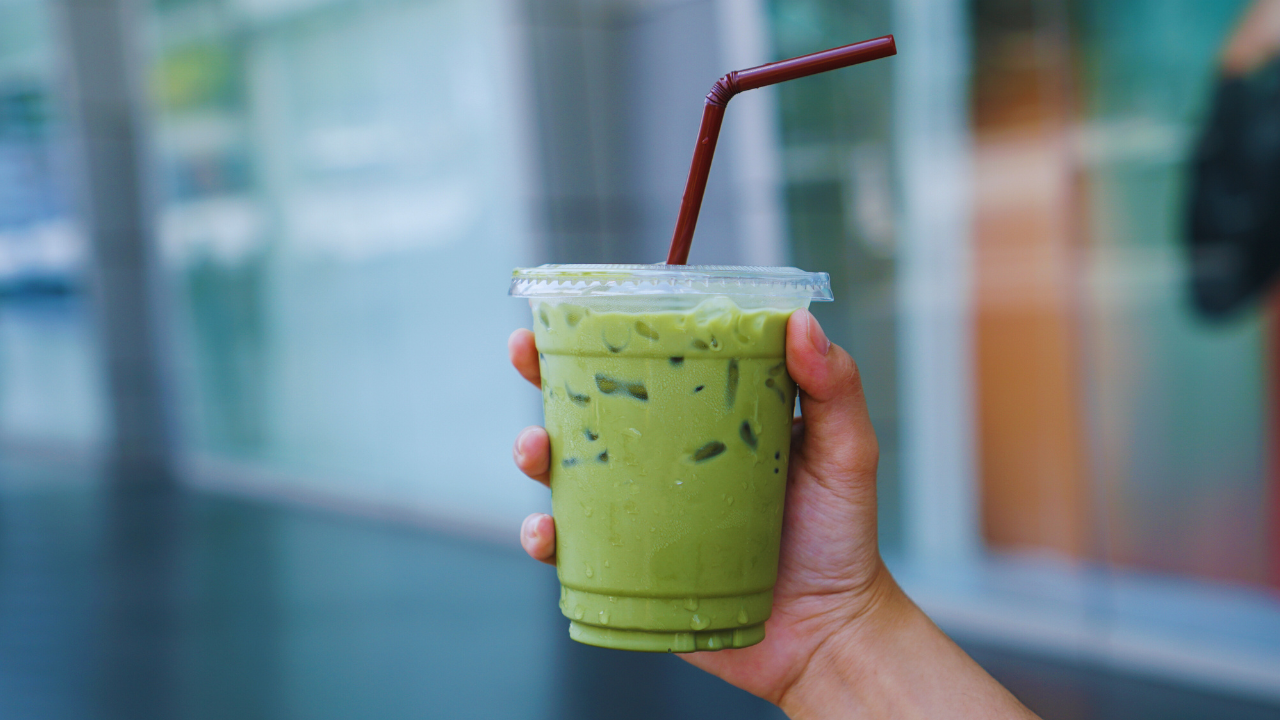
How Much Matcha is Equivalent to a Cup of Coffee?
A standard cup of coffee contains 95 mg of caffeine, while 2 grams of matcha powder contains 70 mg of caffeine. Matcha offers a more sustained energy boost due to the slower release of caffeine, aided by L-theanine.
Can Matcha Replace Coffee?
Absolutely. Matcha can easily replace coffee in your daily routine, offering energy without the crash.
- Energy Boost: Matcha’s combination of caffeine and L-theanine provides sustained energy for up to 6 hours, without the jitters or crash often associated with coffee.
- Transition Tips: Start by substituting one cup of coffee with matcha per day. You can try a “dirty matcha latte” with both matcha and espresso for a smoother transition.
Dirty Matcha Latte Recipe
If you're a fan of both matcha and coffee, the Dirty Matcha Latte combines the best of both worlds. Here’s a simple recipe for you to try at home:
Ingredients:
- 1 tsp Bonsai Cha matcha powder
- 1 shot of espresso or ½ cup brewed coffee
- 1/2 cup milk of your choice (we recommend oat or almond milk)
- Honey or sweetener (optional)
Instructions:
- Brew your espresso or coffee and set it aside.
- In the Bonsai Cha Matcha Maker, add the matcha powder with 1 oz. of hot water and blend.
- In the same matcha maker, froth the milk until it becomes creamy and foamy.
- Pour the frothed milk into a mug and add the matcha mixture.
- Add the shot of espresso or brewed coffee on top.
- Optionally, sweeten with honey or another sweetener to taste.
- Stir gently and enjoy!
Pro Tips:
- Adjust the coffee-to-matcha ratio to your preference.
- Use high-quality matcha for the best flavor.
- Experiment with different milk types and sweeteners to find your perfect matcha-coffee combo!
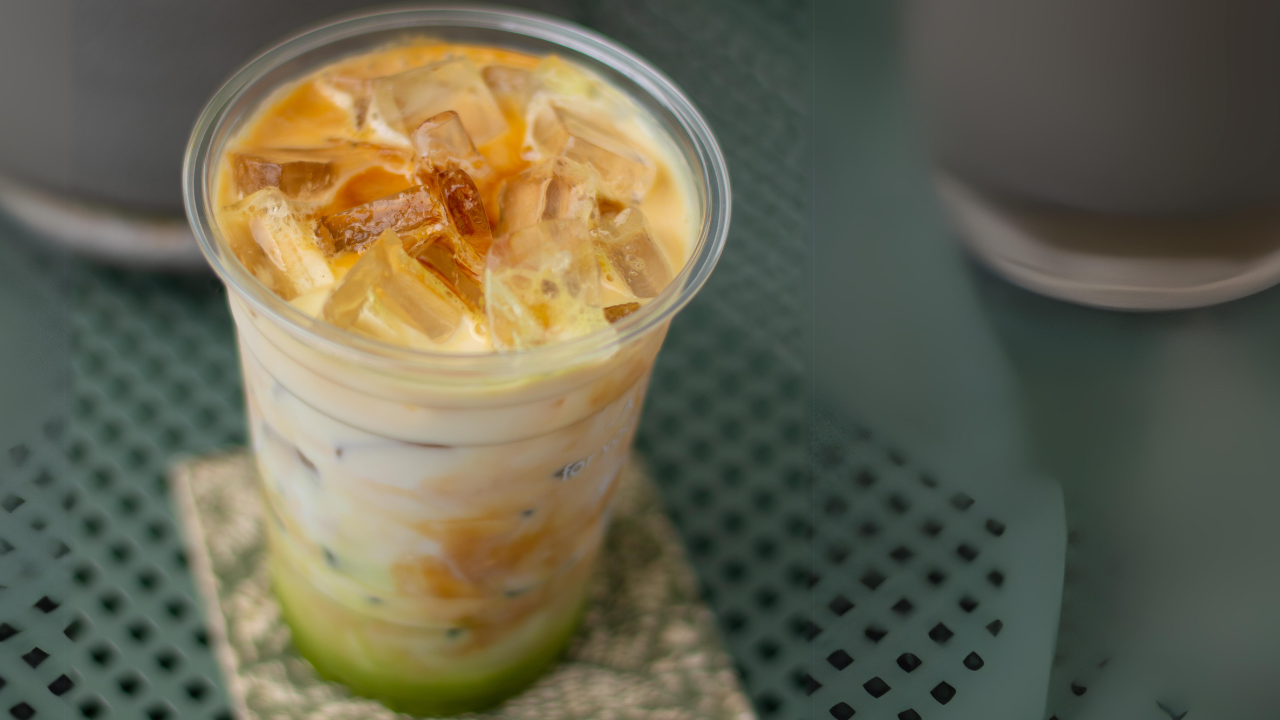
So - Matcha or Coffee – Which is Right for You?
In summary, matcha offers a range of health benefits, including sustained energy, reduced anxiety, and antioxidant power.
Coffee, while providing a quick energy boost, may increase anxiety and disrupt hormonal balance in some individuals. Whether you choose matcha or coffee depends on your lifestyle, caffeine sensitivity, and health goals.
GET YOUR CAFFEINE FIX WITH BONSAI CHA
REFERENCES
- Healthline. (2021, July 20). "How Much Caffeine is in a Cup of Coffee?" Healthline. Retrieved from https://www.healthline.com/nutrition/how-much-caffeine-in-coffee
- Healthline. (2020, December 15). "Matcha vs Coffee: How Do They Compare?" Healthline. Retrieved from https://www.healthline.com/nutrition/matcha-vs-coffee
- Ajmera, R. (2020, February 26). "EGCG (Epigallocatechin Gallate): Benefits, Dosage, and Safety." Healthline. Retrieved from https://www.healthline.com/nutrition/egcg-epigallocatechin-gallate#:~:text=Eating%20foods%20high%20in%20antioxidants,cancers%20(%201%20%2C%202%20).
- Mancini, A., Imperlini, E., Nigro, E., Montagnese, C., Daniele, A., Orrù, S., & Buono, P. (2015). "Biological and Nutritional Properties of Palm Oil and Palmitic Acid: Effects on Health." International Journal of Environmental Research and Public Health, 12(4), 7018-7043. https://onlinelibrary.wiley.com/doi/pdf/10.1155/2013/801457#:~:text=For%20example%2C%20it%20is%20reported,action%20of%20metformin%20%5B30%5D.
- Koopman, F. A., et al. (2019). "The Role of Nutrition and Natural Substances in the Management of Gastrointestinal Conditions and Disorders." Nutrients, 11(11), 2834. https://www.ncbi.nlm.nih.gov/pmc/articles/PMC6836118/
- Xu, Y., Zhao, S., Liu, J., Wang, B., Fan, Y., Zhao, Z., & Deng, B. (2022). "Epigallocatechin Gallate: A Promising Antioxidant for the Prevention and Treatment of Various Human Diseases." Journal of Antioxidants, 11(2), 245. https://www.ncbi.nlm.nih.gov/pmc/articles/PMC8889529/
- Kim, Y. S., et al. (2018). "Green Tea Catechins Enhance the Effects of Caffeine in Promoting Fat Oxidation and Weight Loss." Journal of Food Science, 83(6), 1503–1510. https://www.ncbi.nlm.nih.gov/pmc/articles/PMC6213777/
- Garg, S. K., et al. (2013). "Caffeine’s Effects on Blood Sugar and Metabolic Control in People With Diabetes." Diatribe. Retrieved from https://diatribe.org/diet-and-nutrition/does-caffeine-affect-blood-sugar
- Healthline. (2020, October 22). "Can Coffee Increase Your Metabolism and Burn Fat?" Healthline. Retrieved from https://www.healthline.com/nutrition/coffee-increase-metabolism#TOC_TITLE_HDR_4
- EFSA Panel on Food Additives and Nutrient Sources added to Food (ANS). (2023). The safety of EGCG is set at 322 mg/day; consumption over 800 mg/day may cause liver injuries. National Center for Biotechnology Information (NCBI). Retrieved from https://www.ncbi.nlm.nih.gov/pmc/articles/PMC10346988/
- ConsumerLab. (2024). Best Green Tea 2024: Review of EGCG Content in Green Tea and Matcha. ConsumerLab. Retrieved from https://www.consumerlab.com/news/best-green-tea-2024/02-15-2024/
The information provided in this article is for informational purposes only and is not a substitute for professional medical advice, diagnosis, or treatment. Always consult your physician or a qualified healthcare provider with any questions about a medical condition. Bonsai Cha products are not intended to diagnose, treat, cure, or prevent any disease. The statements in this article have not been evaluated by the FDA or Health Canada.

